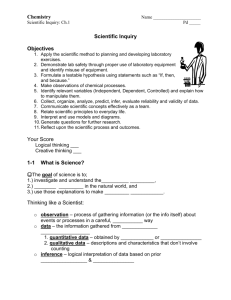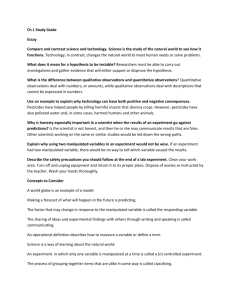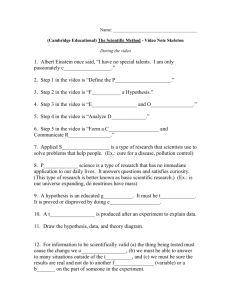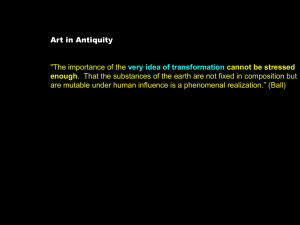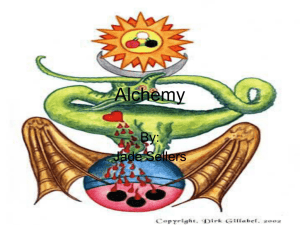section summaries
advertisement
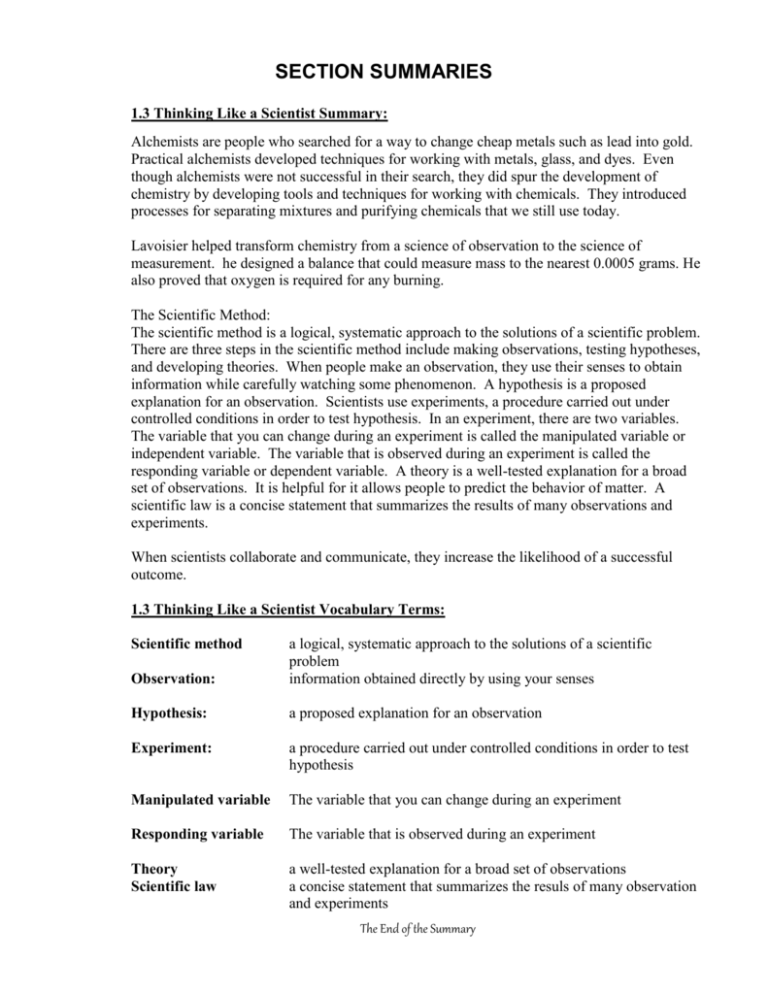
SECTION SUMMARIES 1.3 Thinking Like a Scientist Summary: Alchemists are people who searched for a way to change cheap metals such as lead into gold. Practical alchemists developed techniques for working with metals, glass, and dyes. Even though alchemists were not successful in their search, they did spur the development of chemistry by developing tools and techniques for working with chemicals. They introduced processes for separating mixtures and purifying chemicals that we still use today. Lavoisier helped transform chemistry from a science of observation to the science of measurement. he designed a balance that could measure mass to the nearest 0.0005 grams. He also proved that oxygen is required for any burning. The Scientific Method: The scientific method is a logical, systematic approach to the solutions of a scientific problem. There are three steps in the scientific method include making observations, testing hypotheses, and developing theories. When people make an observation, they use their senses to obtain information while carefully watching some phenomenon. A hypothesis is a proposed explanation for an observation. Scientists use experiments, a procedure carried out under controlled conditions in order to test hypothesis. In an experiment, there are two variables. The variable that you can change during an experiment is called the manipulated variable or independent variable. The variable that is observed during an experiment is called the responding variable or dependent variable. A theory is a well-tested explanation for a broad set of observations. It is helpful for it allows people to predict the behavior of matter. A scientific law is a concise statement that summarizes the results of many observations and experiments. When scientists collaborate and communicate, they increase the likelihood of a successful outcome. 1.3 Thinking Like a Scientist Vocabulary Terms: Scientific method Observation: a logical, systematic approach to the solutions of a scientific problem information obtained directly by using your senses Hypothesis: a proposed explanation for an observation Experiment: a procedure carried out under controlled conditions in order to test hypothesis Manipulated variable The variable that you can change during an experiment Responding variable The variable that is observed during an experiment Theory Scientific law a well-tested explanation for a broad set of observations a concise statement that summarizes the resuls of many observation and experiments The End of the Summary
